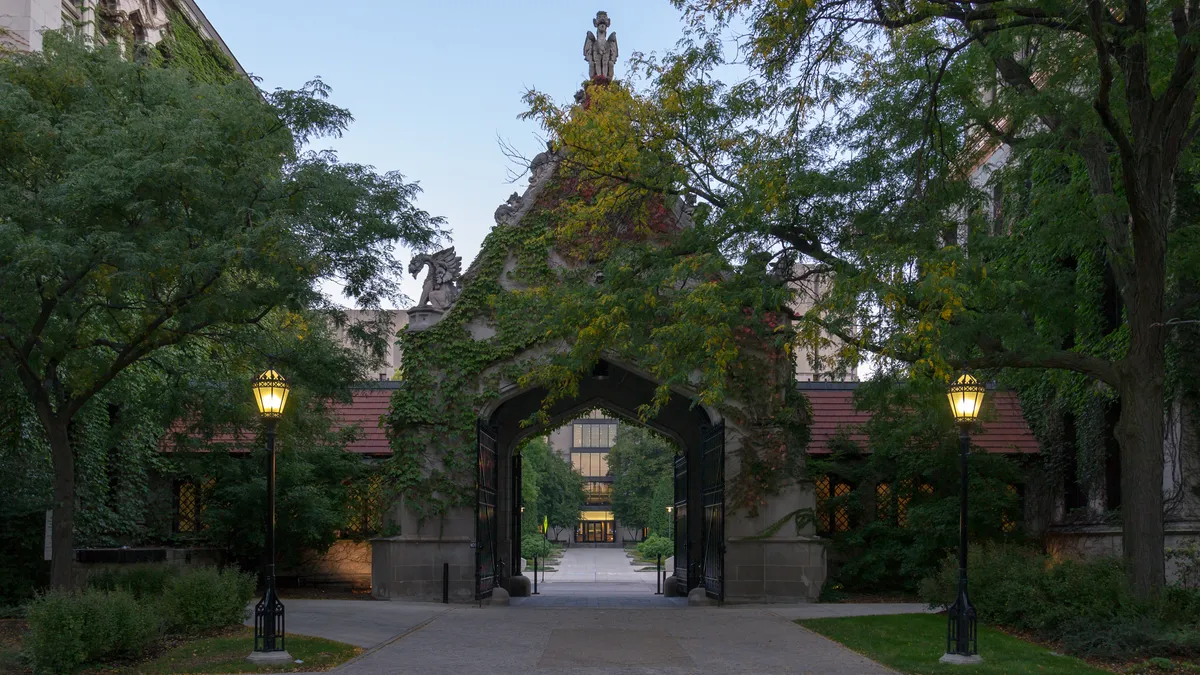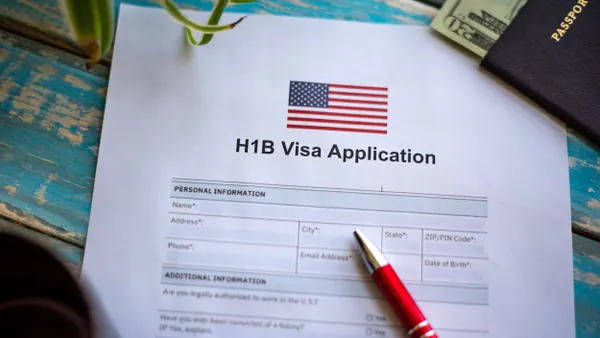Dive Brief:
- Republican lawmakers in Wisconsin introduced a bill Tuesday to ban consideration of race in state financial aid and scholarship awards for college students.
- Wisconsin has several grant programs designed to aid college students from racial minority groups. For instance, the state provides retention grants ranging from $250 to $2,500 annually for students from racial minority groups who are enrolled in private nonprofits or technical colleges.
- If the proposal legislation passes, those aid programs would be made open to all disadvantaged students. Officials could not weigh students’ race, ethnicity, national origin, gender, sexual orientation or religion when deciding if they qualify for assistance, the bill said.
Dive Insight:
The bill's authors — state Rep. Nik Rettinger and state Sen. Eric Wimberger — cited the U.S. Supreme Court's summer ruling against race-conscious admissions practices in a Monday memo introducing a draft of the legislation.
"All students should be given an equal opportunity to attend college and should not be accepted or denied because of the color of their skin," they said.
The bill does not define how it would categorize students as disadvantaged. In their memo, Rettinger and Wimberger indicated the legislation would prioritize students from low-income families, though they did not provide further metrics.
In the wake of the Supreme Court’s ruling, concerns grew that colleges would overcorrect and scale back programs for historically marginalized students. However, the Supreme Court ruling did not address scholarships and financial aid.
Still, some colleges, legislators and other state officials have interpreted the court's decision to include grant programs.
Just after the Supreme Court ruling, the University of Missouri System announced it would no longer factor in race or ethnicity in scholarships.
Rettinger and Wimberger framed their bill as expanding opportunity for students with financial need rather than cutting programs for students from underrepresented backgrounds.
"Cost of tuition is a factor most students consider and for those students from lower income households, we want to be sure that they have just as much opportunity to attend college as any other student," they said in the memo.
Under the proposal, the Universities of Wisconsin system's recruitment and retention plan for disadvantaged students could no longer utilize racial minority-specific strategies. It would also repeal a law requiring the Medical College of Wisconsin and the Marquette University School of Dentistry to "make every effort" to ensure minority students comprise at least 5% of their respective student bodies.
Wisconsin also offers a college loan program designed to boost the number of minority teachers in the state. The program, run by the Higher Educational Aids Board, would functionally be undone under the proposed legislation, and be opened to all disadvantaged students.
The odds of the legislation passing in its current form are unclear. Republicans control both chambers of the Legislature, but they do not have a veto-proof majority. A spokesperson for the state's Democratic governor, Tony Evers, told the Milwaukee Journal Sentinel he would veto the bill should it reach him.
Nationwide, conservative lawmakers are increasingly involving themselves in higher education matters usually left to faculty and administrators, especially their diversity, equity and inclusion work.
Wisconsin has become emblematic of the trend.
Earlier this month, Republican legislators excluded Universities of Wisconsin workers from pay raise approvals for all state employees. The move is part of their prolonged battle to pressure the system to cut its DEI spending.










